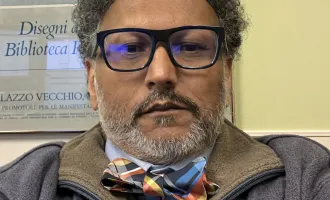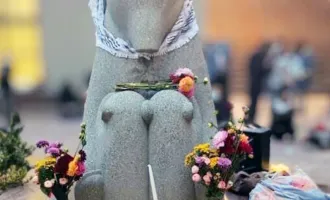This Date in UCSF History: Regents End Affirmative Action, Resistance Planned
Originally published in Synapse on September 14, 1995. On July 20 the UC Regents voted on a resolution to prohibit the use of race, religion, sex, color, ethnicity, or national origin as criteria for admission to the university; another resolution banned affirmative action in the university’s employment and contracting practices.
The new employment and contracting policies start in January 1996. The new admissions policy takes effect in January 1997.
In a “Dear Colleague” letter sent lo members of the UC community earlier this week, Peltason called for “expansion of our outreach efforts to inform students about and prepare them for a university education.”
The regents will soon appoint a task force to evaluate various “student outreach” mechanisms that, it is hoped, will guarantee an ethnically diverse UC student population.
Peltason slated that UC Berkeley has already developed “a major new outreach program, called the Berkeley Pledge, that will get the message out to prospective students that if they participate in the Pledge program and qualify for admission, they will receive sufficient student aid lo permit them to enroll at UCB.
Over the coming months there will be other initiatives on the campuses and in the Office of the President to increase the eligibility rate of students from all races and all backgrounds.”
At UCSF a Sept. 12 pro-affirmative action meeting in Cole Hall was attended by about 100 students, staff and faculty members.
Michael Adams, director of the campus Affirmative Action office, said the regents’ decision has caused deep consternation.
“We have gotten numerous calls and e-mails asking, ‘Need I apply for a promotion?’ ‘Is this an anti-woman, anti-minority vote?’ ‘Need I apply for admission to UCSF?’”
Adams’s reassuring answer: “It ain’t over yet!”
Haile Debas, Dean of the School of Medicine, noted that the state constitution requires that the university be politically independent of all political and sectarian influence.
“The decision the regents made July 20 was deeply disturbing,” Debas said. “The board became highly politicized, and I believe it abrogated its responsibility for deliberative action on UC’s behalf on a matter of great weight and significance. Instead, they elected to launch the Governor’s presidential campaign.”
On Sept. 14 there will be a regents meeting at the Laurel Heights campus. The California Student Civil Rights Coalition is planning a demonstration in support of affirmative action for noon at Laurel Heights.
There will also be a meeting in Toland Hall at the same time, sponsored by the UCSF Women’s Resource Center.
Speakers will be Elaine Lew, an Affirmative Action officer for the East Bay Municipal Utilities District; Robin Pierce, an attorney and Adjunct Professor of Law at Golden Gate University; Gloria Estolano, a civil rights attorney with the U.S. Department of Education Office for Civil Rights; and Deidre Acker, director of the UC Santa Barbara Women’s Resource Center.
On Thursday October 12, students will hold a National Day of Protest against the undoing of affirmative action programs.



